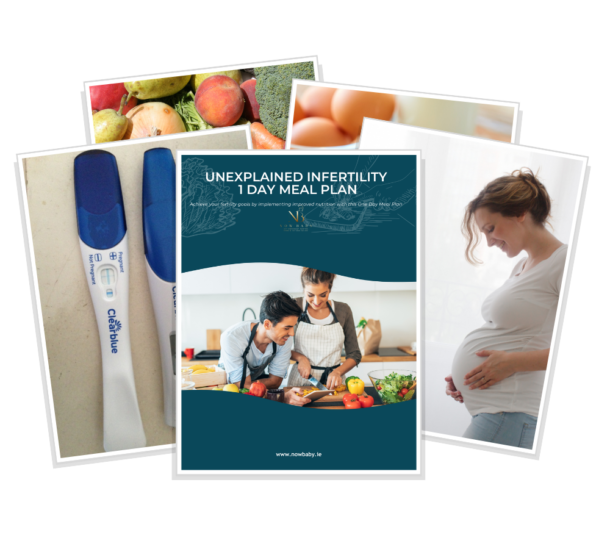PCOS or Poly Cystic Ovaries
PCOS or Poly cystic ovaries and Poly Cystic Ovarian Syndrome (PCOS) are primarily a metabolic disorder which may cause infertility. Approximately 15% of women have this condition,
The cause of PCOS
The cause of PCOS may include both insulin resistance and oestrogen dominance.
Insulin is a fat storage hormone and is involved in energy production. Insulin resistance occurs when the body no longer processes insulin correctly and as a result blood sugars become dysregulated, similar to diabetes. Poor insulin control may cause excess fat to accumulate, particularly around the middle. Oestrogen is stored in body fat. The excess storage of oestrogen can cause irregular cycles, low progesterone and failure to ovulate.
Symptoms of PCOS include
- Few or no periods
- Recurrent miscarriage
- Difficulty getting pregnant
- Difficulty losing weight
- Cravings and binges
- Adult acne
- Excess body hair
- Excess body fat, particularly around the middle
- Mood swings
Calorie restrictive diets are not suitable for people with weight gain caused by hormone imbalance. In fact, calories restriction can make the condition worse. Simple nutrition and lifestyle changes, specific to these hormone imbalances, can reduce or eliminate the symptoms and help you succeed to conceive.
PCOS and infertility
Women often only seek help with PCOS when they are trying to conceive. Up to that point they may have been using the contraceptive pill to regulate their cycles. Unfortunately this is an ineffective treatment for PCOS. The withdrawal bleed which occurs when the pill is stopped for 7 days after 21 days is not a period and should not be used as an indication of a natural cycle. Menstruation is considered the 5th Vital sign alongside our temperature, blood pressure, pulse and respiratory rate. Even an irregular or absent period can give a better indication of health than pharmaceutically suppressed symptoms.
There are a few aspects to the condition which can affect fertility
Irregular or absent cycles
This is a symptom of the condition, not the underlying cause. Achieving a regular cycle naturally will come about as a result of improving insulin sensitivity and oestrogen dominance.
Failure to ovulate
As mentioned earlier, oestrogen is stored in body fat. Body fat higher than 34% may interfere with natural ovulation. Improving insulin sensitivity can reduce fat storage and associated oestrogen dominance resulting in ovulation occurring naturally.
Ovarian cysts
Cysts on the ovaries occur as a result of follicles (growing eggs) which have failed to rupture and continue growing to become a cyst. Anti Mullerian Hormone (AMH) is often high with PCOS, This is the hormone involved in recruitment of follicles from the ovaries and bringing them forward for maturation 3 months prior to ovulation. High AMH can result in an excessive number of follicles being present, low luteinising hormone prevents the follicles from rupturing resulting in often painful cysts. This can also lead to incorrect readings on ovulation predictor kits (OPKs), giving false positives. More accurate methods of ovulation tracking are required for PCOS.
Higher risk of miscarriage
The risk of miscarriage in the general population is approx 25%, 1 in 4 pregnancies end in miscarriage. Unfortunately this risk is even higher for women with PCOS. Because miscarriage is more often a fertility issue related to pre conception care, rather than a pregnancy issue, it is so, so important for your partner to achieve and maintain superb sperm health so that the risk is mitigated.
PCOS and pregnancy
Gestational diabetes is a condition which only develops during pregnancy. It is, as the name suggests, a specific form of diabetes. When uncontrolled, either through diet or medication, the baby can grow too large which creates health risks for the baby and may require birth interventions.
Risks for gestational diabetes include
- Advanced maternal age, over 35
- Obesity
- Previous history of gestational diabetes
- Previous big baby
- PCOS
Women with PCOS are at higher risk of gestational diabetes than others. Medical intervention to force ovulation or pregnancy doesn’t address the underlying cause and therefore the gestational diabetes remains a risk. By resolving PCOS through nutrition and lifestyle changes and maintaining these changes through your pregnancy you can not only succeed to conceive but also reduce your gestational diabetes risk.
PCOS treatment
Medical interventions for PCOS include;
- Metformin
- Clomid
- Letrozole
- IUI
- IVF
None of these address the underlying cause of your PCOS so you will continue to experience any associated symptoms. By tackling the insulin resistance with simple nutrition and exercise, then addressing oestrogen dominance with nutrition and lifestyle changes, the condition can be controlled long term, helping you to get pregnant naturally and enjoy a stress free pregnancy and a healthy baby.






